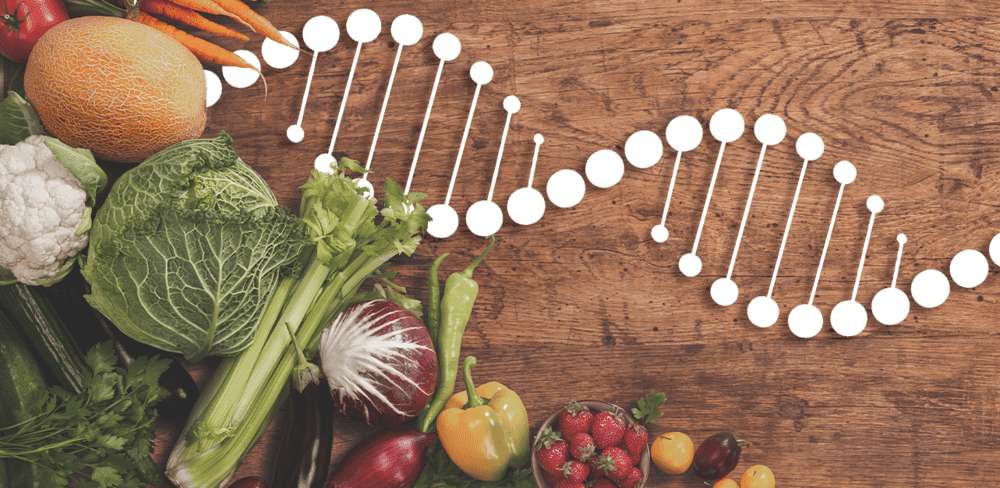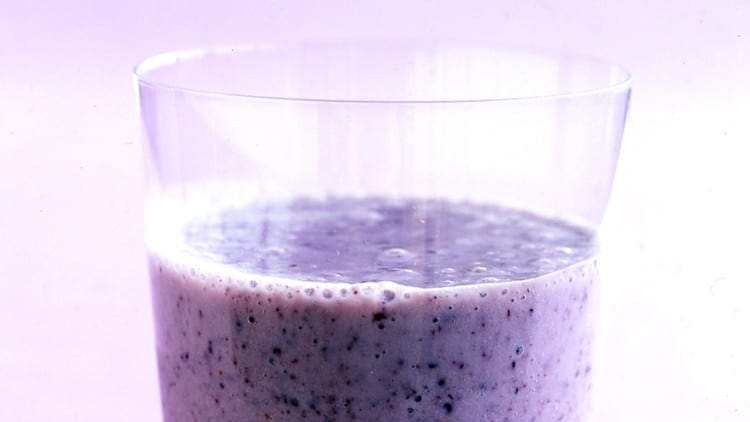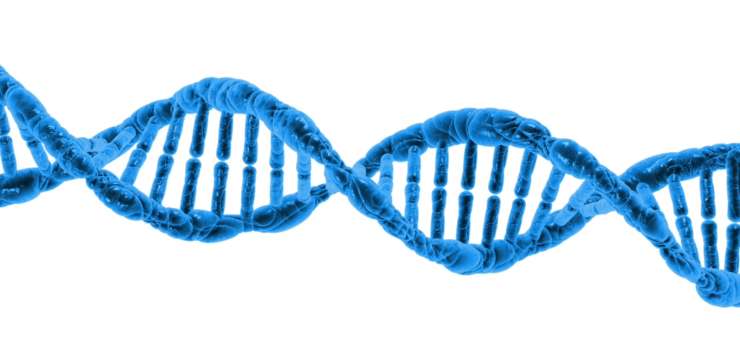
Researchers are trying to understand how nutrigenomics can affect a person’s health. Studies have shown that epigenetics increases the risk of several health issues. Other studies have also shown that nutrition can change the risk of disease. For many years, researchers have studied the way that traits in plants and animals are passed down between generations. However, this process is still not well understood. A recent study evaluated how epigenetic marks are passed down between generations of pregnant rats given personalized nutrition. The findings showed both genetic and characteristics changes in the rats’ offspring. This suggests that maternal traits and diet may send different signals to the fetus.
Another study showed methylation changes in mice given more methyl donor intakes over six generations. These findings demonstrated that genetic and characteristic changes passed down between generations may be how environmental factors affect genes in plants and animals to allow adaptation to different environments. The purpose of the following article is to discuss how nutrigenomics and traits between generations can ultimately affect a person’s overall well-being.
Table of Contents
Epigenetics, Nutrition, and Exercise
Researchers have determined that the role of epigenetics in health issues like cancer is caused by methylation changes in several different types of genes and it is commonly associated with aging. However, the increased risk of cancer may be due to factors in the person’s immediate course of life where changes in epigenetics may happen years before the development of health issues like cancer. One study found that methylation of the breast-cancer-related gene is associated with the increased risk of early-onset breast cancer. Other studies have shown that resveratrol prevents methylation changes while folic acid affected gene expression associated with changes in methylation and other functions.
Eicosapentaenoic acid also caused methylation changes in the tumor suppressor gene associated with leukemia cells. This study demonstrated the effect of a polyunsaturated fatty acid on epigenetics. Another study found that methylation increased in women diagnosed with human papillomavirus that didn’t have cervical intraepithelial neoplasia. The changes in methylation were associated with higher concentrations of folate and cobalamin in the blood stream. Another study also found that methylation changes in the tumor suppressor gene L3MBTL1 were ultimately associated with overall health. Further studies are necessary to determine how nutrition can affect epigenetics and traits between generations.
Two studies evaluated the effects of exercise on methylation. One of the studies showed methylation changes in people who participated in physical activities for about 30 minutes every day compared with people who engaged in physical activities for less than 10 minutes every day. In the other study, volunteers who participated in exercise demonstrated changes in methylation and gene expression. These findings suggest that methylation is affected by physical activity.
Nutrigenomics and Risk of Health Issues
Numerous studies have evaluated the role of epigenetics in people with diabetes. According to researchers, changes in methylation of several genes have been shown to be associated with insulin resistance in patients with diabetes. A single change in gene expression caused significant methylation changes in people with diabetes compared to healthy controls. However, other studies found changes in traits between generations and obesity. Furthermore, methylation changes did happen in people with normal glucose metabolism which then developed impaired glucose homeostasis. Various genes have been shown to be different in people with diabetes compared to healthy controls, according to the studies.
According to numerous other studies, twins were found to have increased methylation associated with increased insulin resistance. These findings suggest that epigenetic marks associated with diabetes may occur before symptoms and determine the risk of disease. In conclusion, increasing evidence has demonstrated that nutrition can ultimately cause changes to a person’s epigenetics and how these are associated with the increased risk of developing health issues.
For more information regarding how epigenetics affects personalized nutrition, please review this article:
Epigenetics: Are There Implications for Personalised Nutrition?
Healthcare professionals and researchers have demonstrated that we can change our epigenetics and gene expression as well as improve the risk of developing a variety of health issues, including inflammation and cancer, which can ultimately cause chronic pain, by controlling the food we eat and focusing on our nutrigenomics. Starting in the kitchen and then taking it directly to the genes, if we follow balanced nutrition, we will see a significant change in our overall health and well-being. At our clinic, we have the ability to assess your specific genetic factors and what dietary guidelines are best for you. One test we use for this is from DNA life, called DNA Diet. A sample of this report is shown below:Â

Studies show that nutrition can affect methylation and gene expression. These studies have also found that balanced nutrition can improve how good food affects our overall health and well-being. The following article discussed how our epigenetics can affect traits passed down between generations, including methylation and the risk of disease. Although a good diet is essential it may be difficult for some people to follow. Drinking juices or smoothies can be easy ways to include the balanced nutrition we need to promote our health and well-being. Below, I’ve provided a smoothie recipe so you can address your nutrigenomics from the kitchen to your genes. – Dr. Alex Jimenez D.C., C.C.S.T. Insights

Berry Bliss Smoothie
Servings: 1
Cook time: 5-10 minutes
- 1/2 cup blueberries (fresh or frozen, preferably wild)
- 1 medium carrot, roughly chopped
- 1 tablespoon ground flaxseed or chia seed
- 1 tablespoons almonds
- Water (to desired consistency)
- Ice cubes (optional, may omit if using frozen blueberries)Blend all ingredients in a high-speed blender until smooth and creamy. Best served immediately.
The scope of our information is limited to chiropractic, musculoskeletal, and nervous health issues or functional medicine articles, topics, and discussions. We use functional health protocols to treat injuries or disorders of the musculoskeletal system. Our office has made a reasonable attempt to provide supportive citations and has identified the relevant research study or studies supporting our posts. We also make copies of supporting research studies available to the board and or the public upon request. To further discuss the subject matter above, please feel free to ask Dr. Alex Jimenez or contact us at 915-850-0900.
Curated by Dr. Alex Jimenez D.C., C.C.S.T.
References:
- KA;, Burdge GC;Hoile SP;Lillycrop. “Epigenetics: Are There Implications for Personalised Nutrition?†Current Opinion in Clinical Nutrition and Metabolic Care, U.S. National Library of Medicine, 15 Sept. 2012, pubmed.ncbi.nlm.nih.gov/22878237/.
Disclaimers
Professional Scope of Practice *
The information herein on "Nutrigenomics and Traits Between Generations" is not intended to replace a one-on-one relationship with a qualified health care professional or licensed physician and is not medical advice. We encourage you to make healthcare decisions based on your research and partnership with a qualified healthcare professional.
Blog Information & Scope Discussions
Welcome to El Paso's wellness blog, where Dr. Alex Jimenez, DC, FNP-C, a board-certified Family Practice Nurse Practitioner (FNP-C) and Chiropractor (DC), presents insights on how our team is dedicated to holistic healing and personalized care. Our practice aligns with evidence-based treatment protocols inspired by integrative medicine principles, similar to those found on dralexjimenez.com, focusing on restoring health naturally for patients of all ages.
Our areas of chiropractic practice include Wellness & Nutrition, Chronic Pain, Personal Injury, Auto Accident Care, Work Injuries, Back Injury, Low Back Pain, Neck Pain, Migraine Headaches, Sports Injuries, Severe Sciatica, Scoliosis, Complex Herniated Discs, Fibromyalgia, Chronic Pain, Complex Injuries, Stress Management, Functional Medicine Treatments, and in-scope care protocols.
Our information scope is limited to chiropractic, musculoskeletal, physical medicine, wellness, contributing etiological viscerosomatic disturbances within clinical presentations, associated somato-visceral reflex clinical dynamics, subluxation complexes, sensitive health issues, and functional medicine articles, topics, and discussions.
We provide and present clinical collaboration with specialists from various disciplines. Each specialist is governed by their professional scope of practice and their jurisdiction of licensure. We use functional health & wellness protocols to treat and support care for the injuries or disorders of the musculoskeletal system.
Our videos, posts, topics, subjects, and insights cover clinical matters, issues, and topics that relate to and directly or indirectly support our clinical scope of practice.*
Our office has reasonably attempted to provide supportive citations and has identified the relevant research studies or studies supporting our posts. We provide copies of supporting research studies available to regulatory boards and the public upon request.
We understand that we cover matters that require an additional explanation of how they may assist in a particular care plan or treatment protocol; therefore, to discuss the subject matter above further, please feel free to ask Dr. Alex Jimenez, DC, APRN, FNP-BC, or contact us at 915-850-0900.
We are here to help you and your family.
Blessings
Dr. Alex Jimenez DC, MSACP, APRN, FNP-BC*, CCST, IFMCP, CFMP, ATN
email: coach@elpasofunctionalmedicine.com
Licensed as a Doctor of Chiropractic (DC) in Texas & New Mexico*
Texas DC License # TX5807
New Mexico DC License # NM-DC2182
Licensed as a Registered Nurse (RN*) in Texas & Multistate
Texas RN License # 1191402
ANCC FNP-BC: Board Certified Nurse Practitioner*
Compact Status: Multi-State License: Authorized to Practice in 40 States*
Graduate with Honors: ICHS: MSN-FNP (Family Nurse Practitioner Program)
Degree Granted. Master's in Family Practice MSN Diploma (Cum Laude)
Dr. Alex Jimenez, DC, APRN, FNP-BC*, CFMP, IFMCP, ATN, CCST
My Digital Business Card






